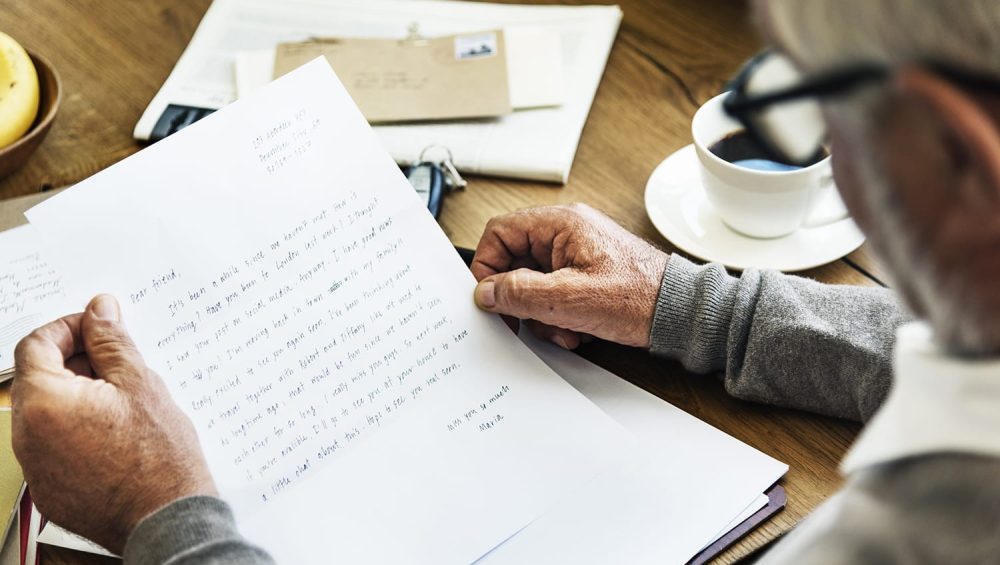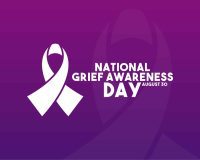We prepare for the end of our life by creating living wills and power of attorneys, but when the dying process actually begins to take place, we still tend to reach for medical technology in the attempt to exhaust all other possibilities. Unfortunately, what’s being sacrificed with that is quality of life.
It’s completely natural to be scared when we’re facing the end of our lives, but this fear shouldn’t be what drives us to ask questions or make decisions. Lack of information on the natural progression of a disease and when to push for comfort care can prevent devastating emotional, financial, and physical consequences for the patient and family.
Click here to learn more about planning ahead for hospice care.

It’s important to be informed about the signs and symptoms of when our loved one is dying. Too often, families get caught up in the final days and hours when compassionate and honest caring about dying and end of life process is most needed. End-of-life education is telling families when to push for comfort care, what the signs are of someone actively dying, and the natural course of the disease as well as knowing when it’s time to seek closure. Many families of dying patients are missing out during final vigils with loved ones by not knowing.
The patient and family must understand the natural progression of a disease and the treatment options. By asking questions and taking things deeper, patients and families can best match answers to their own goals and values.
Tani Bahti, Founder of Passages: Support & Education in End of Life Issues, and the author of Dying to Know: Straight Talk About Death and Dying, explains that, “Sometimes, it’s the discomfort of the healthcare professionals who believe that death is failure or that telling the truth is ‘taking away hope.’ It becomes easier to offer a treatment, however futile, seeking solace in the illusion that doing anything is better than facing the difficult emotions of patients and families when they are told that reversal or cure is no longer possible. Sometimes it’s the inability of the patient or family to let go, or their fear of the unknown that drives futile care. Sometimes it’s the belief that by refusing treatment they are somehow declaring that it’s okay for their loved ones to die.”
It’s okay and normal to not know what you don’t know. Tani created a list of questions for families and patients to ask themselves when making treatment decisions and options. As you read through the questions, it’s always a good idea to keep in mind your own personal beliefs, values, and lifestyle. People can respond to treatments differently so it’s a good idea to keep ideas open on all options available to make the most informed decision.
Here are some questions to ask your doctor:
- Do I have the information I need to make this decision?
- Is fear or lack of information pushing me toward a particular decision?
- What am I most afraid of?
- What are my goals at this time in my life and will this treatment help me reach them?
- Am I making a treatment decision based on what I believe someone else wants me to do or what I really want to do? Have I sat down with that person to clarify what each of us want?
- Who or what is my source of strength and support, and have I utilized them?
- If I have a limited life expectancy, how do I want to spend the time I have?
- What does fighting the good fight mean to me? Seeking aggressive treatment until the end or allowing a natural death?
- Have I completed my advance directives (living will and power of attorney), which declare my wishes for the extent of medical treatment I wish to receive in the event I can’t speak for myself?
- Have I talked with my family and physician about my advance directives?
- Have I asked all my questions, expressed all my fears, and shared what I truly feel with my family and physician?
- Is the goal of this treatment to cure, prolong life or relieve symptoms?
- What is the best I can hope for with this treatment?
- What is the worst I should prepare for if this doesn’t work?
- Is this a standard treatment or experimental? What are the chances for success in my particular case?
- How and when will I know it’s working?
- How will this impact my daily living, comfort and/or goals?
- If I have side effects, how long might they last? What can be done to prevent or minimize them?
- Are there any potentially permanent side effects?
- Is this covered under my insurance? What will the cost be to me?
- Will I need extra help to manage at home, and if so, for how long?
- If I refuse this treatment, what can I expect to happen?
- If I refuse this treatment, will my doctor change?
- Is there a counselor, support group or someone I can talk to about this?
- Do you have material about this treatment that I can take home and review?
- Are there other ways to manage my disease and would you recommend them? Why or why not?




